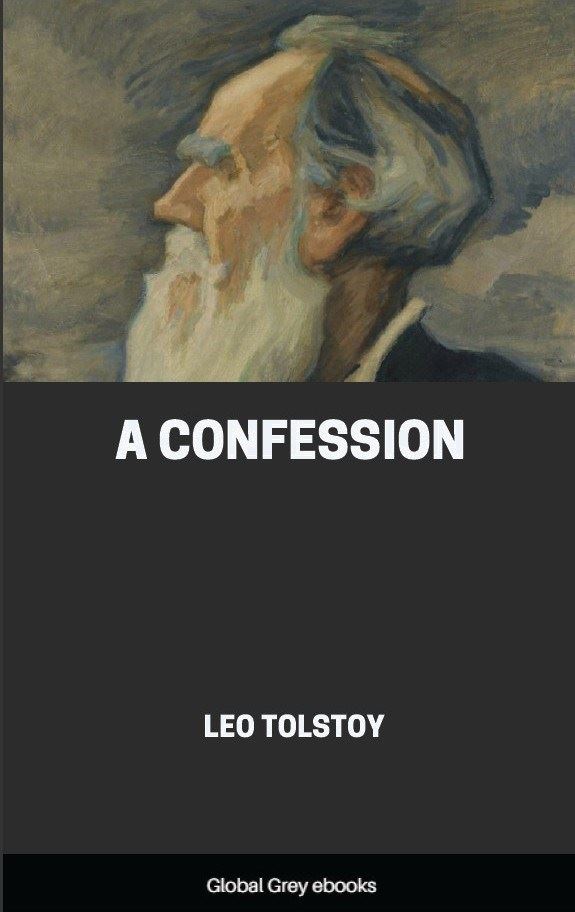yive
life is evil
- Nov 6, 2020
- 695
This is what the famous Russian writer Leo Tolstoy said about ways to solve the problem of life.
This is an excerpt from his work, which he called «A Confession».
I think many of us will find these feelings familiar, so I decided to share them with you.
P. S. You can also send here your quotes about the problem of life, which seem interesting to you.
Here is his quote:
This is an excerpt from his work, which he called «A Confession».
I think many of us will find these feelings familiar, so I decided to share them with you.
P. S. You can also send here your quotes about the problem of life, which seem interesting to you.
Here is his quote:
«I found that for people of my circle there were four ways out of the terrible position in which we are all placed.
The first was that of ignorance. It consists in not knowing, not understanding, that life is an evil and an absurdity. People of this sort — chiefly women, or very young or very dull people — have not yet understood that question of life which presented itself to Schopenhauer, Solomon, and Buddha. They see neither the dragon that awaits them nor the mice gnawing the shrub by which they are hanging, and they lick the drops of honey. but they lick those drops of honey only for a while: something will turn their attention to the dragon and the mice, and there will be an end to their licking. From them I had nothing to learn — one cannot cease to know what one does know.
The second way out is epicureanism. It consists, while knowing the hopelessness of life, in making use meanwhile of the advantages one has, disregarding the dragon and the mice, and licking the honey in the best way, especially if there is much of it within reach. Solomon expresses this way out thus: "Then I commended mirth, because a man hath no better thing under the sun, than to eat, and to drink, and to be merry: and that this should accompany him in his labour the days of his life, which God giveth him under the sun".
"Therefore eat thy bread with joy and drink thy wine with a merry heart. Live joyfully with the wife whom thou lovest all the days of the life of thy vanity... for this is thy portion in life and in thy labours which thou takest under the sun. Whatsoever thy hand findeth to do, do it with thy might, for there is not work, nor device, nor knowledge, nor wisdom, in the grave, whither thou goest."
That is the way in which the majority of people of our circle make life possible for themselves. Their circumstances furnish them with more of welfare than of hardship, and their moral dullness makes it possible for them to forget that the advantage of their position is accidental, and that not everyone can have a thousand wives and palaces like Solomon, that for everyone who has a thousand wives there are a thousand without a wife, and that for each palace there are a thousand people who have to build it in the sweat of their brows; and that the accident that has today made me a Solomon may tomorrow make me a Solomon's slave. The dullness of these people's imagination enables them to forget the things that gave Buddha no peace — the inevitability of sickness, old age, and death, which today or tomorrow will destroy all these pleasures.
So think and feel the majority of people of our day and our manner of life. The fact that some of these people declare the dullness of their thoughts and imaginations to be a philosophy, which they call Positive, does not remove them, in my opinion, from the ranks of those who, to avoid seeing the question, lick the honey. I could not imitate these people; not having their dullness of imagination I could not artificially produce it in myself. I could not tear my eyes from the mice and the dragon, as no vital man can after he has once seen them.
The third escape is that of strength and energy. It consists in destroying life, when one has understood that it is an evil and an absurdity. A few exceptionally strong and consistent people act so. Having understood the stupidity of the joke that has been played on them, and having understood that it is better to be dead than to be alive, and that it is best of all not to exist, they act accordingly and promptly end this stupid joke, since there are means: a rope round one's neck, water, a knife to stick into one's heart, or the trains on the railways; and the number of those of our circle who act in this way becomes greater and greater, and for the most part they act so at the best time of their life, when the strength of their mind is in full bloom and few habits degrading to the mind have as yet been acquired.
I saw that this was the worthiest way of escape and I wished to adopt it.
The fourth way out is that of weakness. It consists in seeing the truth of the situation and yet clinging to life, knowing in advance that nothing can come of it. People of this kind know that death is better than life, but not having the strength to act rationally — to end the deception quickly and kill themselves — they seem to wait for something. This is the escape of weakness, for if I know what is best and it is within my power, why not yield to what is best?..
I found myself in that category».
— Leo Tolstoy, «A Confession».
Last edited:

